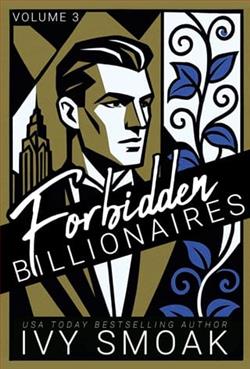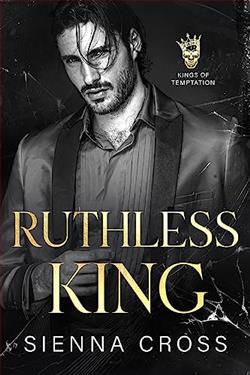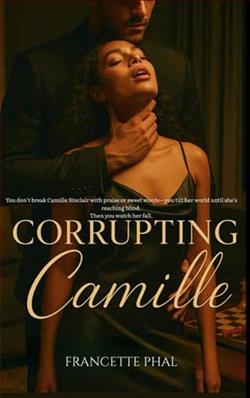Page 10 of Hometown Girl
Wes Simpson walked by Beth’s office. The awkward thirtysomething had a knack for hanging around outside her door, just waiting for a chance to come in and make small talk with her. She knew he was working up the courage to ask her out, and judging by his nervous pacing, she thought today might be his day.
“Okay, when do you want me to meet you?” she asked, turning her attention back to her sister.
“Now. I’ll be waiting.” Molly hung up.
Beth glanced up and met Wes’s gaze. His eyebrows popped up, and he smoothed a hand over his balding head.
As much as she didn’t want to get pulled into another of Molly’s ridiculous schemes, she didn’t want Wes to ask her out even more.
She stood, phone still pressed to her ear. “I suppose I can make that work.” Nodding, she pretended to listen to a nonexistent person on the other end. Then she picked up her purse, slung it over her shoulder and walked out into the hallway, closing her door as she mouthed an “I’m sorry” to Wes.
He held up a hand to excuse her, and she mumbled a quiet “mm-hmm” as if still talking to someone on the phone.
Outside, she drew in the crisp spring air and stuffed her cell back into her purse. Several employees were just making their way to work, many of whom she barely recognized. She spent more time in her office staring at the wall than socializing with the rest of the Whitaker team.
“Love your people, Beth. That’s rule number one.”Her dad had been so good at that. Why hadn’t he passed that on to her?
Beth drove out to the edge of town, then down a string of country roads that would lead her to Fairwind Farm and Orchard. Gravel kicked up underneath her tires, and a trail of dust followed her to what used to be the old farm’s parking lot.
Her memories of Fairwind had deceived her. In her mind, the farm was something grand, teeming with excitement and joy, but what she saw before her was a lonely spot of land that had long been forgotten.
A huge white barn sat at the front of the property. Back in the day, it had been a store, a place to buy apple pie, apple cider or any one of ten different kinds of fresh-picked apples, among other things. And one glorious day in late spring, there had been tents set up outside where locals hosted the county-famous barn sale, the Fairwind Farm Market. Artisans and farmers and vintage collectors sat under white pop-up tents selling their goods and greeting the droves of tourists that spent the day exploring Willow Grove and the farm. People would drive hours to visit Fairwind—made it an annual ritual.
When had that changed?
Outbuildings dotted the land, and behind them, rows and rows of trees. The apple trees. The evergreens. How had they fared all these years? She drove along the perimeter, where weeds had grown up into the parking lot. She could almost see the families flocking toward the main entrance, excited to spend their day picking their own apples, the smell of sweet apple-cider donuts filling the air. Children would squeal as goats and sheep and llamas ate from their hands.
She remembered being one of those children.
Up ahead, she saw the main house—set apart from the orchard, barns and public grounds. She remembered thinking how lucky the Pendergast family was to live in a place everyone wanted to visit. How quickly that blessing had turned into a curse.
In the driveway, Molly’s green VW Bug sat, her sister not far away. Never had she known a car to suit someone so well.
Beth parked and got out, still not sure what she was doing there but certain that romanticizing this old orchard was just about the last thing she needed to do right now. She should be sitting at her desk, working.
“Isn’t it spectacular?” Molly was at her side before she even emerged from her car.
“You can’t be serious.” Beth looked around, saddened by what had become of this place. It had been such an important part of their lives growing up. Now, weeds pushed their way through the earth, overtaking what might have been nice landscaping. The main barn and two visible outbuildings needed paint and some obvious repair. The big white farmhouse off to the left still boasted a grand wraparound porch, but Beth could tell, even from a distance, the old house had been all but forgotten.
It was weatherworn and uncared for, and it showed. Maybe the rumors were true—Harold Pendergast had gone mad and given up completely.
“Look around, Beth, don’t you remember this place?” Molly sounded like a kid, all wonder and excitement. Did she really not see how run-down Fairwind had gotten? Beth walked toward the main barn and stopped, taking it all in with a wide smile and a deep breath.
“I do remember this place,” Beth said. “That’s what makes it so sad to be here now.” Really, truly sad. This was somewhere they’d all come as a family—before her mom’s stroke, before her dad died, before Seth became the black sheep and moved away. It broke her heart to think about her youngest brother—out there on his own, still holding on to old grudges as if he needed them to live. All attempts to reach him had gone unanswered, and while Beth and her siblings had found a way to get on with life, she knew it devastated their mother.
“It just needs some TLC,” Molly said, turning back toward the main barn and pulling Beth out of the past.
“It needs a lot more than that,” Beth scoffed.
“Think about how great it could be. I mean, really, just picture it for a minute—I can practically hear the folk band playing. I can smell that glorious scent of apple-cider donuts filling the air. I can see the rows and rows of pumpkins out back—kids trudging through the fields to pick the perfect one.” Molly squinted toward her, shielding her eyes from the sun with her hand. “We were those kids.”
“That was a long time ago.” Beth followed her sister toward the barn.
“What if this place could be restored?” Molly turned and faced her, walking backward. “How great would that be?”
“It would be a lot of work. A lot of time. A lot of money.” Beth crossed her arms as she plodded through the unmown grass.
“But it would be great. Admit it.” Molly stopped walking, so Beth followed suit.















